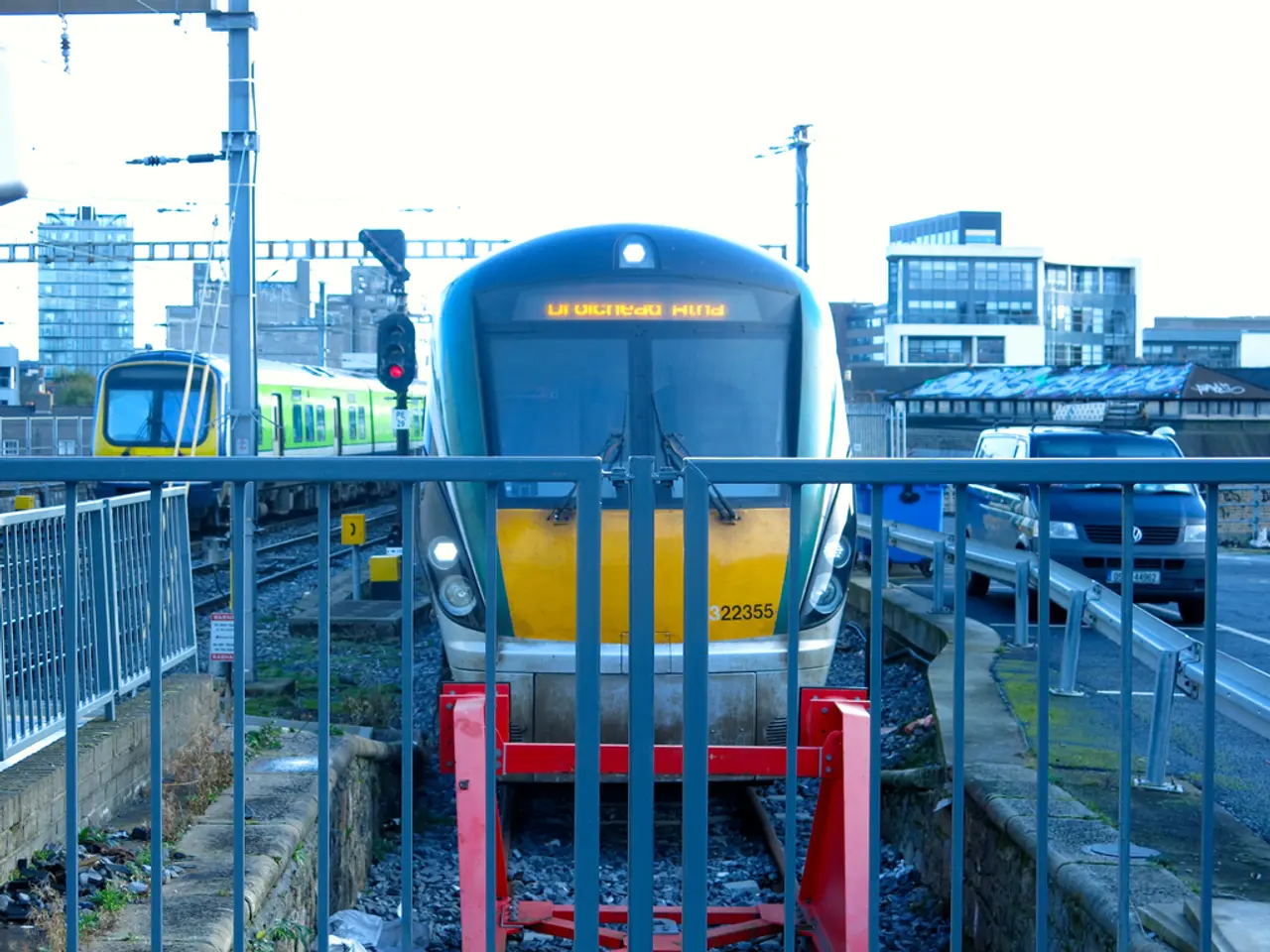Rail Line Controversy: Decision Ahead for Hamburg-Hanover Rail Connection Progression
A controversial plan to construct a new railway track between Hamburg and Hannover has been proposed by the German railway company. This new route, if approved, could potentially revolutionise regional transport, but it has sparked heated debates among environmentalists, politicians, and citizens in Lower Saxony.
The proposed track aims to alleviate the overloading of the existing track, which currently sees a 47% increase in trains compared to its capacity, resulting in a punctuality rate of only 56%, significantly lower than the overall network's 62%. The railway argues that the new track is necessary to ensure more reliable train services and a shortened travel time – an ICE journey between Hamburg and Hannover could be reduced from 79 to 59 minutes.
However, the plan faces stiff opposition from various quarters. The Lower Saxony state government, environmental groups like NABU Lower Saxony and the Nature Conservation Association of Lower Saxony, and even agricultural organisations have voiced their concerns. The project threatens several species such as the lapwing, skylark, and common midwife toad, and could potentially disrupt natural landscapes. Additionally, agricultural areas, moors, and forest areas would be lost, which could have negative implications for climate protection.
The Federal Ministry of Transport, on the other hand, remains neutral in the debate about the new construction plan. A decision regarding the new track is expected in the Bundestag later this year. The Bundestag's Transport Committee will initially deal with the plan, followed by a vote in the Bundestag, with a simple majority required for a resolution.
In a bid to address these concerns and engage with the public, a meeting of citizens' initiatives and politics is scheduled for Sunday in the constituency of Lars Klingbeil (SPD) in the Lüneburg Heath. The Federal Finance Minister is reportedly unable to attend, and the state government will be represented by Transport Minister Grant Hendrik Tonne (SPD).
Interestingly, the railway does not have a specific date for the construction of the route but plans to publish cost projections during the parliamentary scrutiny. The planned new track is supposed to run more directly and vertically, partly along the A7.
Meanwhile, the railway also plans to modernise the existing route next year, including renovating train stations in Stelle, Suderburg, Großburgwedel, and Langenhagen by mid-2026, and a general renovation in 2029. In regional transport, at least Soltau (Heidekreis) and Bergen (district of Celle) would be better connected to major cities if the new track is constructed.
However, the construction of the route is unlikely to begin for many years, with the railway stating that the subsequent start of construction could be delayed by lawsuits. The controversy surrounding the new track continues, with both supporters and opponents presenting their arguments. As the debate unfolds, it remains to be seen how the Bundestag will vote on this contentious issue.
Read also:
- visionary women of WearCheck spearheading technological advancements and catalyzing transformations
- A continuous command instructing an entity to halts all actions, repeated numerous times.
- Oxidative Stress in Sperm Abnormalities: Impact of Reactive Oxygen Species (ROS) on Sperm Harm
- Genetically manipulated rabbits sprout ominous black horns on their heads








